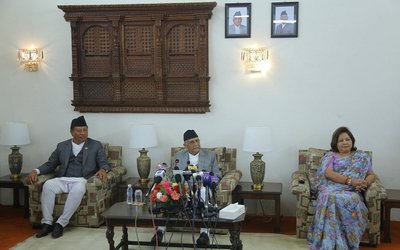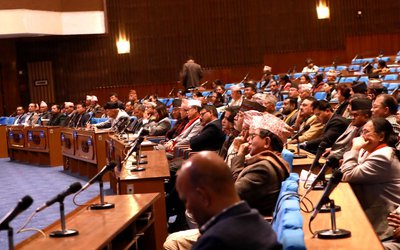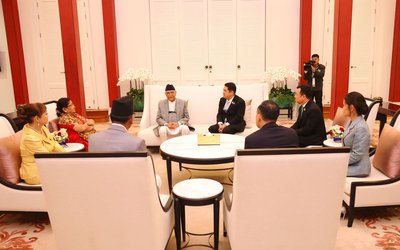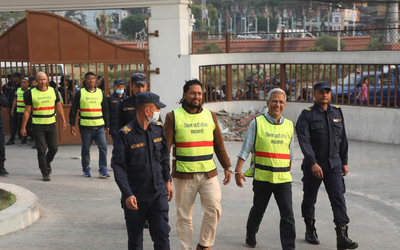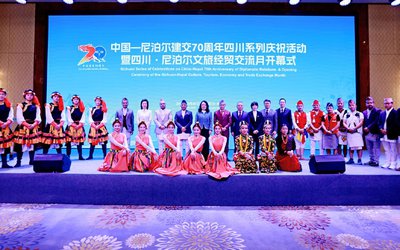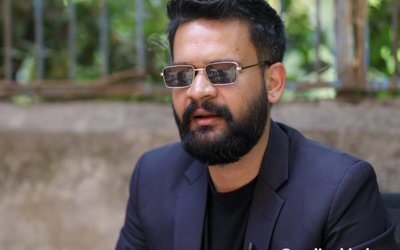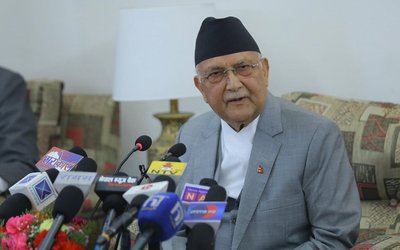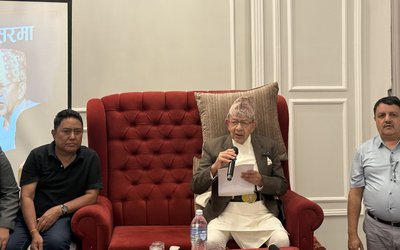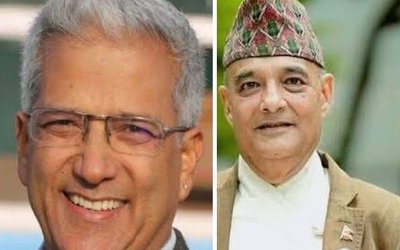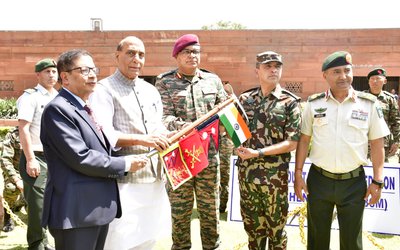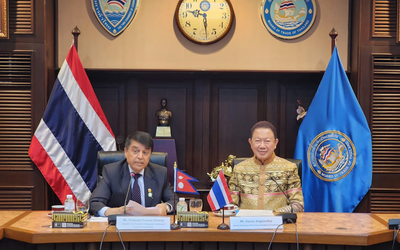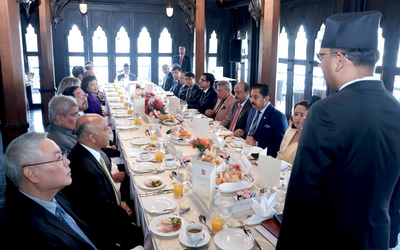
Asian Development Bank (ADB) Vice President Wencai Zhang, on a 4-day visit to Nepal, met with Nepal’s Prime Minister Khadga Prasad Oli, Deputy Prime Minister and other senior officials to discuss how Nepal can accelerate its economic recovery and develop plans for sustained higher growth.
“There is an urgent need to accelerate reconstruction and implementation of development programs to prevent a further slowdown in growth and to ensure rapid recovery,” Zhang said.
The ADB Vice President also met with Nepal’s Deputy Prime Minister and Minister for Energy Top Bahadur Rayamajhi, Finance Minister Bishnu Prasad Paudel and Vice-chairman of the National Planning Commission Yubaraj Khatiwada.
During his meetings, Zhang welcomed the finalization of the Reconstruction Policy and NRA Grant Guidelines, and progress towards the formulation of Post Disaster Risk Recovery Framework, following the recent establishment of the NRA and the appointment of its Chief Executive Officer.
ADB forecasts Nepal’s economy to grow 1.5% in FY2016 ending on 15 July 2016 after 3% growth last year, due to the severe earthquake in April 2015, aftershocks, and subsequent supply disruptions. ADB expects growth will pick up to 4.8% in FY2017.
He added, “To expedite unhindered implementation of reconstruction works, the NRA needs to release sufficient budget immediately, enforce fast-track decision making, and adopt building-back-better principles and innovative approaches for time and cost-efficiency.”
Under ADB’s country partnership strategy with Nepal for 2013–2017, ADB is prioritizing major investments in hydropower generation and transmission, enhancing the capacity of international airports, building new economic corridors to promote regional trade, and reforming higher education systems. ADB will continue its support for inclusive growth through investments in agricultural diversification and productivity, water supply and sanitation, and rural roads. ADB will work to attract private sector investment and public-private partnerships for large-scale hydropower and transmission projects and high-value agricultural value chains.
In his meeting with the Deputy Prime Minister, Mr. Zhang noted the government’s efforts to address Nepal’s energy crisis.
“ADB will build on its existing support in the energy sector and will extend assistance for 25 MW grid solar power plants and two major storage hydropower projects – the 300 MW Dudhkoshi plant and the 410 MW Nalsing Gadh plant.”
Zhang also noted the government’s intent to graduate from least developed country status by 2022, and become a middle income country by 2030 while achieving the sustainable development goals.
“This calls for a credible vision and a strategy to achieve it by setting out policies, prioritizing public expenditure and investments to build physical and human capital, improving governance and the business environment, building a competitive industrial base and enhancing regional cooperation and integration. ADB will continue to provide the support for that,” Mr. Zhang said.
During his visit to Nepal, Mr. Zhang visited the project sites of Earthquake Emergency Assistance Project in Kavrepalanchowk district as well as the Melamchi Water Supply Project in Sindhupalchowk district. He also participated in the International Seminar on Envisioning Nepal 2030 organized by the National Planning Commission.
- IME GROUP: Expands Into Paper Industry
- Mar 24, 2025
- CPN UML: Instigated By India
- Mar 23, 2025
- ADB’S CHIEF ECONOMIST: Nepal Reduces Poverty
- Mar 11, 2025
- FM DR. DEUBA: A Successful Visit
- Mar 11, 2025
- MD GHISING: Target Of Personal Grudge
- Mar 09, 2025
